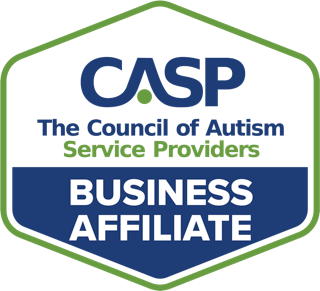This piece is based on our recent webinar, Navigating Insurance: Unlocking the Denials & Appeals Process, presented by Emily Roche, Director of Services at ABA Therapy Billing and Insurance Services.
Emily brings a range of experience in working with ABA providers and insurance companies and has navigated contracting, appeals, and negotiations across multiple payers and states.
For Applied Behavior Analysis (ABA) providers, maintaining a healthy revenue stream is one of the most essential functions.
Doing so helps ABA providers keep up with organizational costs, staffing and the resources necessary to run a successful practice.
However, it is not uncommon for some ABA providers to become fraught about the complexities that surround the billing and claims process.
For some providers, fear of denial can lead to avoidance of pushy insurance companies looking to negotiate.
For others, fears can simply be rooted in an inability to navigate the appeals process when an insurance company issues a denial.
According to Emily Roche, “accurate billing can result in 90 percent of claims paid.”
In order to collect the other 10 percent, ABA providers must learn to not only track issues, but resolve errors and overcome fears of appeals by developing a deeper understanding of how to navigate the claim denials and appeals process.
The first step for ABA providers is to understand two common types of appeals:
Clinical and Medical Necessity
This type of appeal issue occurs at the time an ABA provider tries to request authorization when insurance companies may try to immediately deny authorization, reduce the number of hours requested or attempt to dictate service locations, goals, parent training or impose other restrictions.
Billing and Claims Processing
This type of denial or appeal issue occurs when a claim is sent in for processing or when an ABA provider reviews payments or Explanations of Benefits statements.
Roche says it is important to understand that insurance plans cannot dictate:
- Service location
- Parent training
- Goals that relate to services
- Timeline for reducing hours or phasing out services
- Treatment bases on age threshold or years of ABA treatment
At the billing stage, it is equally important for ABA providers to be able to distinguish between different types of errors.
In order to do this, providers should carefully review Explanation of Benefits statements and get to the root cause of anything that has been paid incorrectly or denied.
Take Rethink’s Billing Quiz
10 Insurance Tips for ABA Providers
In order to help with both of these common issues, Emily offers several tips for ABA providers when working with insurance:
1. File claims in a timely fashion and pay attention to appeals deadlines. Be sure to also save all documentation if faxing or mailing claims.
2. Understand laws like the Medical Health Parity and Addiction Equity Act, which exists to protect patients, so you know when to file an appeal or push back on insurance companies.
3. Prevent the need for corrected claims or issues that grow into denials or appeals by addressing clinic-side errors.
4. Train others on how to handle peer reviews and calls with insurance companies.
5. Include the recommended number of hours at the start of services. If a request is made to reduce hours due to schedule conflicts, highlight the reason for the reduction and include the length of time hours will be reduced below the recommended number.
6. Prepare to highlight cases with a significant need or effects that occurred in cases when an issue was left untreated or under-treated.
7. Avoid sounding “too academic” when explaining the reason why a patient needs a particular service.
8. If an insurance company tries to deny a full authorization or reduce hours at the authorization phase, ask for a peer or secondary review after the initial review or phone call. If you go through a secondary review and receive a denial, be sure that the reviewer issues a denial for the difference in hours.
9. If an insurance company authorizes payment for a percentage of recommended hours, the insurance company should issue an authorization for the designated hours they approve of and a denial for the hours not approved. If the insurance company issues a full denial, be sure a denial letter is issued to the provider and the parent.
10. When preparing to write an appeal, be sure to include demographic information, copies of treatment plans, notes and reports and any supporting documentation. Remember to use clear language and be concise. You should also refer to any sections of your contract that are being violated, if any.
When to File a Grievance or Complaint With Your Insurance Network
If you encounter issues such as not receiving a denial letter at all or harsh restrictions from an insurance provider, you can file a grievance or complaint if you are a member of a network.
Remember that you can also exercise your right to consult a healthcare attorney, who will have a deeper understanding of health care laws, or opt to leave or switch your network if issues continue.
Health insurance is very complex, but with the right information and resources, ABA providers can ease fears of the billing and claims process.
For more information, you can also check out practice guidelines from the Association of Professional Behavior Analysts (APBA) and autism spectrum-specific guidelines from the Behavior Analyst Certification Board (BACB).
RethinkBH provides an intuitive and comprehensive solution to scale your ABA business and ensure client success.
Our one-stop-shop platform offers both Clinical and Practice Management tools along with RBT Training, VB-MAPP licenses, and more than 1500 resources/materials as curriculum pieces.
Schedule a demo today at your convenience!









